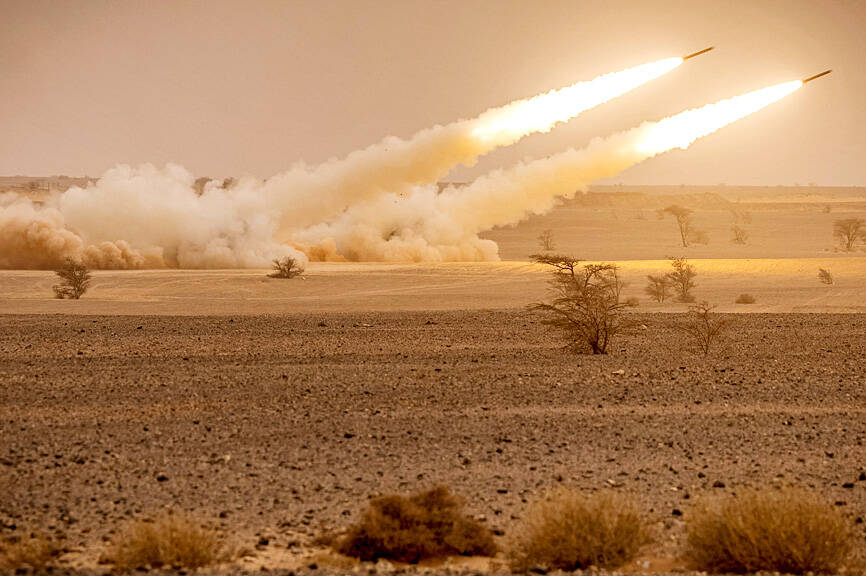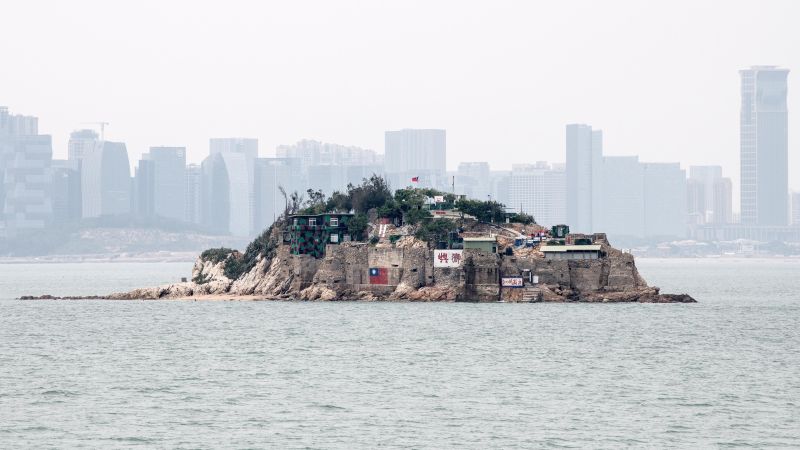Part 4 of 4: Pelosi to visit Taiwan on 2-3 Aug 2022
10. Since the Sunflower Movement the political center has shifted to a pro-Taiwan position that does not accept that Taiwan is a part of China.
(a) This has moved the DPP into the power position, put the KMT on the margins, and the TPP trying to come up with a clear stance of its own, prior to the 2024 Presidential Election in Taiwan (where Tsai’s VP William Lai Ching-te is the front runner). In the past, Lai has referred to himself as a “pro-independence worker” for Taiwan.
(b) Most Americans supporting Pelosi’s visit don’t even know about ‘The Gray Rhino’ in the room this time. As Tsai’s successor, VP William Lai Ching-te, is likely to want to force China’s hand & declare independence, once Tsai steps down at the next election. A gray rhino is a 2-ton animal, with a scary horn that is charging at us. It’s a metaphor for the things that go wrong that is actually avoidable.
(c) Long run consequences for Taiwan is important. Pelosi raised China-Taiwan tensions at a time when tension is already excessive. She damaged Xi Jinping when he is ensuring his third term and is under attack for being weak on Taiwan. This forces him to take especially strong ongoing measures. She raised the baseline for future military signaling, which to show seriousness will now have to start with exercises completely surrounding Taiwan and likely blockading it.
(d) We should take note what Bonnie Glaser wrote: “The actions that China is taking now are intended to drastically shift the status quo in BJ's favor. Think 2012 Senkakus and 2015-16 South China Sea. Many will look back on this visit and say that Taiwan paid too high a price.”
(e) What Pelosi didn't do was to strengthen Taiwan or US support for Taiwan in any way. Trump, Pompeo and Biden already pushed that support to a point that jeopardized the 1979 understanding which is the foundation of Taiwan's enjoyment of peace, prosperity and democracy. The coming period of tension to the 2024 Presidential Election in Taiwan may be bumpy. It will be important for American and Chinese officials to remain in direct contact; and for each side to exercise discipline, so as to focus on preserving peace and stability in Taiwan Strait.
I am not sure how valid is this observation, but it bears discussion
11. Clearly, from the pictures released, Taiwan’s annual "Han Kuang" exercise has staged PR displays that is devoid of military logic (or tactics). Given the Pelosi visit, it is expected that the exercise just prior to her visit have a stronger than usual PR focus. But no competent army would be silly enough to build a trench under a bridge span, with pretty sand bags for walls (when a wood frame to prevent collapse in heavy rains is more practical). The silly thing is having it located only about hundred metres from the beach.
12. As expected, Beijing unleashed a number of measures to punish Taiwan as a result of the trip. The scale and range of these retaliations are bigger than before but as many experts point out, they are not really new tactics. The Taiwanese themselves were rather calm about the Pelosi visit, and how this reflects how Taiwanese perspectives were often neglected regarding trip. While the Taiwanese appreciate the support and solidarity from a high-level official like Pelosi, they also have concerns about the level and extent of China’s retaliation, in this Fourth Taiwan Strait Crisis.
13. As others have noted, Friedman is right about how stupid a move this is. There is no rational reason for it and it harms Taiwan. It really is a comment on the extreme political dysfunction in the US and the fundamental American failure to understand China. Not sure how true but a commentator reported that Pelosi said she will only not go to Taiwan if Biden publicly discourages her and she can blame him.
14. As much as I pity Taiwan, it’s pretty impressive that China, within hours of the Pelosi visit has used every element of DIME to express displeasure:
(a) Diplomacy — Not only has China has lodged a demarche to the US White House National Security Council and the Department of State on US House Speaker Nancy Pelosi's visit to Taiwan, China’s MFA has coordinated responses with other countries like Pakistan, North Korea and even Lesotho.
(b) Information — China’s MFA statement says Pelosi's visit "in any form and for any reason is an escalation of official exchanges between the U.S. and Taiwan and a major political provocation." There is also an active disinformation campaign and cyber attacks.
(c) Military — The Chinese:
(i) say the PLA will "launch a series of targeted military operations to counter" the actions of the U.S. and the DPP authorities, 16 minutes after Pelosi landed in Taipei;
(ii) scale of exercises are so large and in so many areas that Taiwan port authorities asked ships to find alternative routes and avoid areas of China's announced drills around the island. Commenting on the six exclusion zones, M. Taylor Fravel said: “It’s quite clear they’re going to be simulating how they might blockade Taiwan in the future." Scale and depth reflect the fact the PLA is today a much more modern, capable organisation with the capacity to project power further out; and
(iii) flew 27 PLA military aircraft into Taiwan's ADIZ and they crossed over the median line of the Taiwan Strait. These were comprised of 16x Su-30 and 6x J-11. To put this in perspective, when Sen. Tammy Duckworth visited in May and met with President Tsai the PLA launched a 50-sortie incursion. This is a new normal, as China's gray zone tool kit gets a workout.
The silver lining is that Beijing’s overreaction to Pelosi’s visit might result in Taiwan and other countries, like Australia, Canada, and Japan accelerating their own plans to reduce their dependence on China; and
(d) Economics — Chinese customs suspended imports of Taiwanese citrus fruits, chilled white scallops and frozen mackerel, extending the list of banned items to more than 1,000 products as cross-Strait relations have deteriorated in recent years. Chinese mainland will halt natural sand exports to Taiwan — sand is critical for concrete, critical for the construction industry, a critical political support base for the DPP. Ditto for some of the agricultural export bans.
15. The Korea Times says officials in Seoul are all too wary and nervous over the timing of Pelosi's visit.
"Amid the deepening U.S.-China rivalry, China has threatened military actions and it could invoke a U.S. response in kind, which would eventually affect South Korea, because of the South's alliance with the U.S.," director of the U.S.-China Policy Institute at Ajou University Kim Heung-kyu was cited as saying in the publication.
16. Far too many American think tanks make theoretical assessments justifying the need for high levels of spending for military deterrence but show no awareness of the need for American political reassurance, to China, as well.
(a) Stable US-China relations are vital for regional peace and prosperity. But I have given up hope that the US and China can work out a modus vivendi, exercise self-restraint and refrain from actions that will further escalate tensions. The Pelosi visit was not just a re-run of Newt Gingrich's visit a generation earlier, which occurred during an entirely different relationship between the two countries. Pelosi’s political stunt that took a dangerous situation and made it more dangerous.
(b) Thanks to Nancy Pelosi, the prior Team Biden, attempt at a guard-rails strategy for China is firmly thrown into the dustbin of history. She is seen as so toxic, the President of South Korea, will only take a call with her and refuses to meet her, as he is on ‘holiday,’ in Seoul. Keeping in mind that part of President Yoon's policy platform when he ran for president was to strengthen ties with the US.
(c) Taiwanese troops on 3 Aug 2022 fired flares at 2 Chinese UAVs which penetrated Kinmen County's airspace, marking the first time PLA UAVs have appeared over the county.

 news.yahoo.com
news.yahoo.com


/cloudfront-us-east-2.images.arcpublishing.com/reuters/QF7AR242FNMV7MSEWC2MVDLP5U.jpg)


